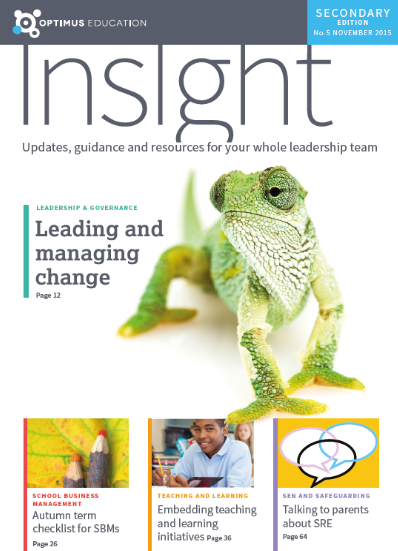Michaela School has received a lot of attention focusing on its unique – and controversial – approach to behaviour and teaching. What is it actually like? Owen Carter reports.
A zero tolerance approach to misbehaviour, no group work and seating plans at lunchtime. Michaela School certainly isn’t for everyone.
Michaela has received a lot of coverage in the blogosphere, some admiring and some more critical. So it was a real privilege to go to Michaela in person and see what it's actually like.
I'll start with this: whatever your opinion of its policies, the team at Michaela have achieved something quite remarkable - that is, a coherent culture, in which children experience the same way of teaching in pretty much every class, and an approach to behaviour that is meticulously enforced throughout the school. It certainly seems to be paying off so far: its headteacher, Katharine Birbalsingh, talks of pupils going from a reading age of eight to 13 in one year. And the moment a teacher’s hand is raised in the middle of a noisy lunch hall the room falls silent.
Here are some of the most powerful things I observed at Michaela.
It took three years to get a building that the free school could be set up in. This meant that the founding staff could be hand-picked: all people who buy into a particular vision of schooling. In short, that vision is:
Before they enter the school, Year 7 have a week long boot camp to get used to its behaviour policy; this also serves as a chance to train staff on implementation. New staff are bombarded with feedback to ensure consistency in teaching and behaviour policy: Katharine herself is in every new staff member’s classroom on average once a day to iron out kinks.
Set routines, like the teacher raising a hand for silence, the ‘appreciations’ offered by pupils at the end of lunch, or their focus on pupils’ posture and eyes tracking the teacher, help create this tightly woven culture and an ethos felt throughout the school.
How many minutes do you lose getting pupils to settle down at the beginning of the lesson? Or through pupils chatting between themselves? Discipline at Michaela is tight, in a way that would make many teachers uncomfortable.
Pupils are told to keep silent in corridors, and always walk on the right. Lines down the middle of each passage make that expectation strikingly clear. What this means is that the transition between break and classroom is relatively seamless: pupils line up, they enter and take their seats, the lesson begins. Though most schools’ behaviour policy is unlikely to be so stark, the attention given to these transitions could pay off in any setting: what are you doing to ensure that the time kids spend between lessons doesn’t end up disrupting the time spent in class?
Michaela’s motto is ‘knowledge is power’. In the library recommended books have stars on the sleeve: all pupils are expected to read 100 of these before they leave the school. Some books have word counts pencilled in: once pupils have read a million words, they join ‘the millionaire’s club’.
The curriculum places a similarly traditional emphasis on ‘the best that has been thought and said’. That same ethos is evident at lunch. Every day there is a different assigned topic of discussion. Teachers eat with pupils and encourage them to discuss the issue, speaking in full sentences, as well as reflect on their lessons. These discussions provide an opportunity for pupils to encounter important issues and debates that their home lives may not expose them to.
 As a new school, Michaela have been able to design what they do from the ground-up. That’s an advantage many schools don’t have.
As a new school, Michaela have been able to design what they do from the ground-up. That’s an advantage many schools don’t have.
Their ethos is fairly unique and difficult to unpick: direct instruction complements the knowledge-focused curriculum, which is complemented by the tightly controlled behaviour policy. It’s certainly not to everyone’s taste. But it is a fascinating example of what commitment to a vision can achieve when everyone in the school, from class teacher to headteacher, is invested in it.
This blog is adapted from our print publication, Insight. Find out more about the resources we publish.